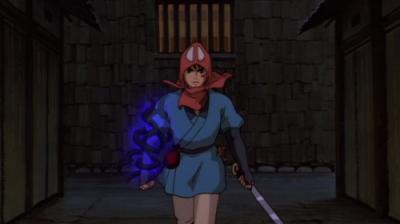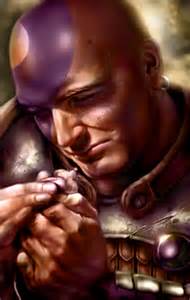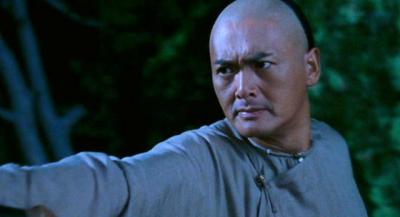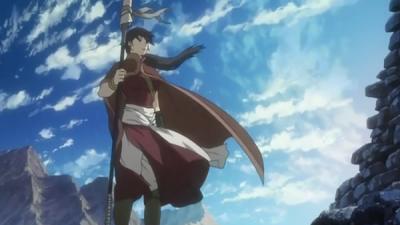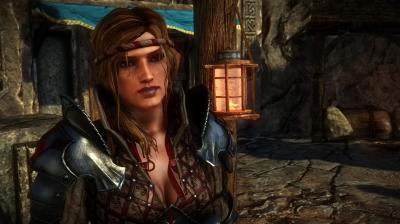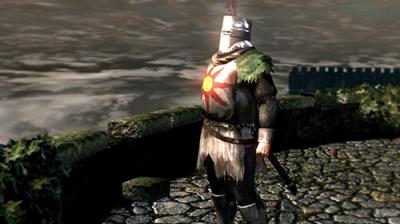This post has been in the working for over a week now, having been interrupted by computer troubles and then growing into a huge monster of semi-coherent rambling which got me to decide to cut it all down to essential parts and get to the point. I hope this will at least somewhat get the main points across in an understandable way. It’s still a monster of a post, but it seems mostly tamed now.
When it comes to fantasy world, bigger is usually considered better these days. People are often more interested in the settings than the plots, but back in the 90s and before you really only got your books that you might read a second or third time to discover another neat little detail or two that you missed before. Today it’s very easy to set up big archives and databases and make them publically accessible, which I think is one of the main driving forces behind the current popularity of and love for getting deeply invested into the background lore of various works of fantasy and science-fiction. When you find something neat, you can share it with all the other fans in the world and discuss it. What was once an occupation for a few hardcore fans is now very much a mainstream activity. I don’t think it’s a new phenomenon. I remember back in the 90s when people gushed about the scale of the worldbuilding in Forgotten Realms and the Dark Eye setting Aventurien, and let’s not forget that “Tolkien-Scholar” is a word that is actually being used without any irony. People always loved fantasy lore, it’s just now become much more accessible.
The Problem with Loredumps
But I see a tendency of people creating huge piles of lore and backstory simply for the sake of having lore and backstory, not so much because it really adds anything to the stories that use the world as a setting. When it comes to literature, this is mostly a matter of taste. Infodumps are only bad when it’s done in a boring way. If all the backstory is presented in an entertaining way it’s called exposition. When you open a book you already signed up to being told a story. Whether it’s story happening now or a story being told within the story doesn’t make a huge difference. But with roleplaying games the situation is different. When you sit down to play, you have come to do things. You’re not really interested in listening to a story.
Getting players to become invested in setting lore is often like herding cats. When you write a three page introduction to get the players familiar with the bare basics of the setting, you generally can not expect that this stuff is known by most of them when the game starts and they create characters. When you have an NPC tell the players the backstory for a quest or an item, almost all of it will go in one ear and out the other. If some of the players might remember next session that they did talk to “a guy” who told them “something”. But often even that is a risky bet. I believe a great part of this problem is presentation. The human brain has an automated mechanism that filters data for pieces of information that are considered relevant and immediately discards everything else. When you have a questgiver make his speech, the players are concentrating on picking out the “what” and “where”, as these are relevant to their next action. Everything else is irrelevant in that moment and means nothing to them.
Mythic Worlds
But that’s really a topic for another time. The reason I am mentining all this is that you have only a very limited amount of information you can get the players to remember, so make it count. When running a campaign, having a compact and lightweight setting can be quite a considerable advantage. But that’s also not without its problems. If your setting has few distinctive features it can easily become generic, forgetable, and feel rather artificial instead of like a believable world. And people really love big and expansive worlds. What ways do you have to recncile these conflicting priorities?
One type of fantasy stories that have always fascinated me greatly in both literature, movies, and videogames are those set in worlds that seem to float disconnected from both space and time. Stories where you don’t have any idea what might lie beyond the horizon and know nothing about what happened in the past or is currently going on in other places. Perhaps the most succesful fictional universe was first introduced to audience with the words “A long time ago in a galaxy far, far away…” There is also the D&D setting Dark Sun, which is just a small stretch of rocky hills with a handful of heavily fortified cities surrounded by sand dunes in all directions, possibly covering the entire world, and (at least in the first release) we’re only being told that the world was once green and alive, but this was a very long time ago. Now there’s just the desert and the sorcerer kings ruling the cities, and nobody knows how long it has been that way and what came before. Then there’s the adaptations of Dune (never read the book) and the stories of Kane by Karl Wagner. There’s Shadow of the Colossus, the Legacy of Kain series, Dark Souls, and also the Halo games (excluding the expanded universe). Or the continent Xen’drik from the Eberron setting. These are all fascinating settings even though – taken by themselves in their original form – they are really very sparse on lore.
This is a type of fantastic storytelling that has a lot in common with how we today perceive mythology. 2,500 years ago the Greeks knew exactly where their myths were taking place. Those where the places where they lived or where they might have been visiting relatives (if they were rich). But to us, Mythic Greece is like a completely different world from the actual Aegean Sea. A Greek merchant could have gone on a ship and sailed to England. But could a Greek hero descend from Mount Olympus and take a ship to travel to Avalon? Could he continue to sail north and reach Niflheim? That doesn’t feel right to modern audiences; it would be like a crossover between different fictional universes. It becomes even clearer when looking at time. Myths don’t happen as part of history. They just happen with no particular order at no particular time. You can’t assign a date to mythological stories. (Mythologized accounts of real historic events are obviously a different matter.) At least to modern audiences, myths are mostly stand alone stories that happen pretty much outside of a greater context. They happen in a mythic place in mythic time. And as I see it, mythic time doesn’t actually flow. Events just float freely and independently, unconnected and in no order.
But all these universes are still really interesting and entertaining settings, even with their scarcity of lore. Which makes them great examples and precedents for the creation of compact campaign settings.
Participatory Worldbuilding
While researching for this post I found a very interesting post on Hill Cantons from a few years back. The idea it presents is that all fiction is partly created by the audience themselves. The author only creates the events of the plot and some basic rules for the world, all the details are actually filled in by the audience. (It might even be true for all art.) Even in a movie the camera only shows a small part of the world but the viewers automatically create the space that lies beyond the edges of the screen. Inception is all about this. It looks like a trippy heist movie to entertain a wide audience, but it really is a movie about filmmaking and storytelling in general. The whole part of Ariadne’s training after the introduction is about worldbuilding in particular. (A lot of basic but good lessons in that movie. The deal with the dream people attacking intruders who mess with the reality is all about the suspension of disbelieve. If you break the rules of the fictional world too much, the audience will butcher the author.) As an author you really only present ideas, the audience will then add their own thoughts and emotional responses to those idea and turn them into a full world that exists in their heads. This happens with all fiction, but when your goal is to make a world that has only a small amount of actual hard facts but feels much larger and full of wonder and magic, it’s a great tool to use. Continue reading “Out of Space, out of Time”


